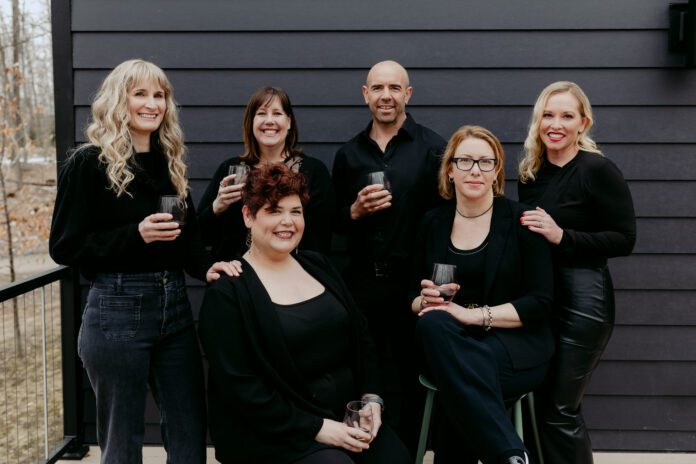
SUTTONS BAY, Mich. – Amanda Danielson, advanced sommelier and founding partner behind the award-winning Trattoria Stella, has been developing plans to amplify the value of Michigan wine and enhance opportunities for industry professionals.
It already has a name.
Loamstead is a $10 million regenerative agriculture and hospitality destination being developed on more than 140 acres in northern Michigan. The project is planned – not as a sprawling complex – but as a thoughtful integration of vineyard, farm and restored structures.
According to Danielson, every element is being designed to honor the land, elevate guest experience and model sustainable growth.
“Loamstead is about building on decades of great work already underway in Michigan’s wine industry,” said Danielson. “It’s about creating infrastructure and programming that support growers, producers and educators – while welcoming new partners and audiences to experience the region’s excellence.”
At the heart of Loamstead is Shady Lane Cellars, one of Michigan’s top wineries for quality, consistency and hospitality. Under the leadership of Executive Winemaker Kasey Wierzba, Shady Lane Cellars has earned accolades from Wine Enthusiast, Food & Wine and Decanter. It is one of only three Michigan wineries to hold rigorous Sustainability in Practice – or SIP – certification.
“The winery and tasting room will continue to operate just as it has, with Wierzba remaining at the helm – producing expressive, site-driven wines and delivering a best-in-class guest experience,” said Danielson.
The estate winery was placed for sale following the death of owner Richard Fortune in 2022. Fortune’s family have since been seeking a new owner who would be more involved in guiding the winery onto its next chapter.
Danielson, now approaching the final phases of due diligence to purchase Shady Lane Cellars, expects the acquisition to be in place this fall. She stressed that her intention is to retain Shady Lane Cellars’ team, branding and identity.
“We’re not here to reinvent what’s already working,” said Danielson. “We’re capitalizing on Shady Lane’s success. I couldn’t do this without Shady Lane Cellars. We’re here to support the many producers relentlessly driving in the quality lane, lend our experience from global markets and help shine a brighter light on what Michigan can do.”
Loamstead – taking its name from a stewardship of the soil found in Leelanau County – is poised to expand opportunities and foster the professional and financial success of hard-working and talented professionals in the food and beverage industry.
The project is powered by the team behind Trattoria Stella, a restaurant known for two decades of consistent excellence rooted in staff investment and uncompromising standards. That same ethos defines Loamstead’s approach – focusing on people, place and professionalism.
Loamstead’s founding team will include Danielson, as director of strategy and systems; Wierzba, as director of winegrowing and land stewardship; Elise Curtis-Dull, as director of culinary and education; Sarah Bielman, as director of business planning and integrity and Melissa & Dawid Conradie, as co-directors of guest experience and design.
Wierzba sees vast potential for the property at Shady Lane Cellars as an asset for the community.
She has long imagined sustainable uses for land on the estate that isn’t suitable for vines. Loamstead plans include the potential for a culinary garden, for raising fowl and poultry, increasing agricultural diversity on plots of land not suitable for grapes and sharing this process through community education spaces.
“The full property is 140 acres with 55 planted to vineyard and another 15 to 20 scheduled for planting in the spring of 2027,” said Wierzba. “We would use these new planting opportunities as a field lab for a sustainable vineyard start up with different treatments that allow us to study cover cropping and under-vine management, as well as training systems that strengthen our sustainable practices.”
Danielson sees Loamstead as a multi-phase project that will transform open farm land into a working campus. This is where regenerative agriculture, culinary innovation, hospitality and education will intersect. Historic buildings on the property will be restored. Vineyards will be expanded. New spaces will be built for learning, celebration and connection.
“When Amanda started talking about the idea and her vision, the first thought I had was this is really exciting. The second thought I had was this is a really big project,” said Wierzba. She has assembled this amazing group of people who have put in so much great work in their fields already. We can do so much more together.”



